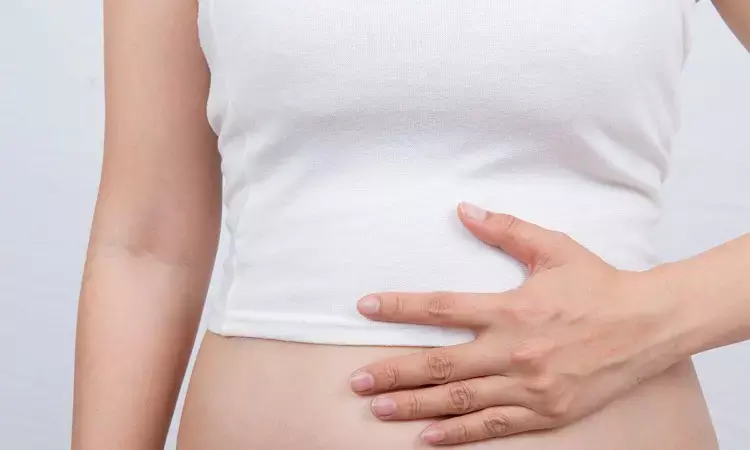- Home
- Medical news & Guidelines
- Anesthesiology
- Cardiology and CTVS
- Critical Care
- Dentistry
- Dermatology
- Diabetes and Endocrinology
- ENT
- Gastroenterology
- Medicine
- Nephrology
- Neurology
- Obstretics-Gynaecology
- Oncology
- Ophthalmology
- Orthopaedics
- Pediatrics-Neonatology
- Psychiatry
- Pulmonology
- Radiology
- Surgery
- Urology
- Laboratory Medicine
- Diet
- Nursing
- Paramedical
- Physiotherapy
- Health news
- Fact Check
- Bone Health Fact Check
- Brain Health Fact Check
- Cancer Related Fact Check
- Child Care Fact Check
- Dental and oral health fact check
- Diabetes and metabolic health fact check
- Diet and Nutrition Fact Check
- Eye and ENT Care Fact Check
- Fitness fact check
- Gut health fact check
- Heart health fact check
- Kidney health fact check
- Medical education fact check
- Men's health fact check
- Respiratory fact check
- Skin and hair care fact check
- Vaccine and Immunization fact check
- Women's health fact check
- AYUSH
- State News
- Andaman and Nicobar Islands
- Andhra Pradesh
- Arunachal Pradesh
- Assam
- Bihar
- Chandigarh
- Chattisgarh
- Dadra and Nagar Haveli
- Daman and Diu
- Delhi
- Goa
- Gujarat
- Haryana
- Himachal Pradesh
- Jammu & Kashmir
- Jharkhand
- Karnataka
- Kerala
- Ladakh
- Lakshadweep
- Madhya Pradesh
- Maharashtra
- Manipur
- Meghalaya
- Mizoram
- Nagaland
- Odisha
- Puducherry
- Punjab
- Rajasthan
- Sikkim
- Tamil Nadu
- Telangana
- Tripura
- Uttar Pradesh
- Uttrakhand
- West Bengal
- Medical Education
- Industry
Underweight and overweight women at higher risk of successive miscarriages

A new study has shown that underweight and overweight women are at a significantly higher risk of experiencing recurrent miscarriages compared to those of average weight.
A research team led by the University of Southampton assessed the link between women's lifestyle and risk of recurrent pregnancy loss, defined as women having two or more consecutive early miscarriages. The systematic review and meta-analysis study has been published in the journal Scientific Reports.
Miscarriage is the most common complication of early pregnancy, affecting 15 - 20% of all pregnancies. Recurrent pregnancy loss is a complex disease and although often attributed to numerous medical factors and lifestyle influences, the cause is deemed "unexplained" in around 50% of cases.
The results of this latest study found that there are higher occurrences of successive miscarriages in mothers who are underweight (having a Body Mass Index score of less than 18.5), overweight (having BMI between 25 and 30) and obese (having BMI above 30).
The study's first author, Dr Bonnie Ng, MRC Fellow in Clinical and Experimental Sciences at the University of Southampton said, "Our study included sixteen studies and showed that being underweight or overweight significantly increases the risk of two consecutive pregnancy losses. For those with BMI greater than 25 and 30, their risk of suffering a further miscarriage increases by 20% and 70% respectively.'
The research team also set out to assess the impact of factors such as smoking and consumption of alcohol and caffeine. However they were unable to establish conclusively whether these have any impact or not due to inconsistencies of the results from a small number of studies and heterogeneity in women taking part in them.
Co-author Dr George Cherian, Specialist trainee in Obstetrics and Gynaecology, at Princess Anne Hospital, Southampton said, 'while our study did not find any associations between recurrent pregnancy loss and lifestyle parameters such as smoking, alcohol and caffeine intake, further large-scale studies are required to clarify this.'
Whilst recognising that more observational and clinical research is needed to establish the full extent of lifestyle choices, the authors conclude that weight is a risk factor that can be modified to reduce the risk.
'Our findings suggest that having an abnormal BMI exacerbates a woman's risk of suffering from repeated miscarriages, and so clinicians really need to focus on helping women manage this risk factor' concluded Ying Cheong, Professor of Reproductive Medicine at the University of Southampton and senior author of the paper.
https://www.nature.com/articles/s41598-021-86445-2
Hina Zahid Joined Medical Dialogue in 2017 with a passion to work as a Reporter. She coordinates with various national and international journals and association and covers all the stories related to Medical guidelines, Medical Journals, rare medical surgeries as well as all the updates in the medical field. Email: editorial@medicaldialogues.in. Contact no. 011-43720751
Dr Kamal Kant Kohli-MBBS, DTCD- a chest specialist with more than 30 years of practice and a flair for writing clinical articles, Dr Kamal Kant Kohli joined Medical Dialogues as a Chief Editor of Medical News. Besides writing articles, as an editor, he proofreads and verifies all the medical content published on Medical Dialogues including those coming from journals, studies,medical conferences,guidelines etc. Email: drkohli@medicaldialogues.in. Contact no. 011-43720751


